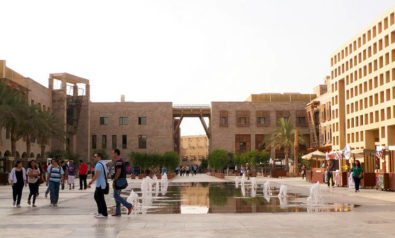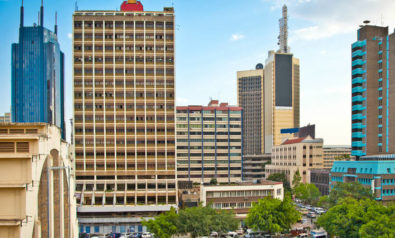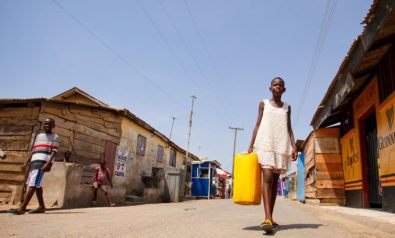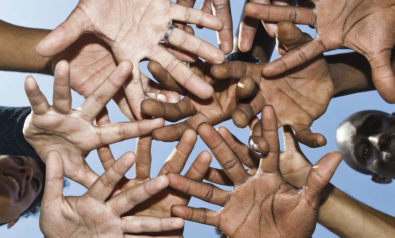It is time for graduates and the youth to take the lead in ensuring they have the skills needed for today’s economy.
In many parts of sub-Saharan Africa, it takes a family fortune to send a child to school. So many parents cut firewood, sell drinking water and perform other labor-intensive jobs, with the hope of investing in their child’s education. As a result, graduation from high school, university or a higher learning institution is a great honor for the whole family. Most successful Africans will share such stories of perseverance with pride.
Graduation, therefore, represents a significant turning point in a family’s history — an event that will stem the tide of inter-generational poverty. This thesis held true through the 1970s, when Africa was on the rise and many post-colonial states were exuberant from independence.
However, this optimism was short-lived as wars, coups and bad governance curtailed the rise of high-growth industries or new service sectors, limiting creative opportunities and dampening hope for subsequent generations. Bloated African governments spent their money on high personnel costs, and little was left for investment in infrastructure and capital-intensive projects. Students who hoped to enter government jobs after completing higher education courses found that the sector could not absorb the rising numbers of graduates.
Today, poor competitive indices, weak manufacturing systems and technology, and the uncontrolled influx of cheap Asian imports and labor have contributed to the rise of youth unemployment. The emergence of large-scale youth unemployment across Africa has significant negative consequences for long-term growth. Unemployment breeds idleness and, at its worst, fuels violence and terrorism. For example, northern Nigeria has the largest concentration of unemployed youth in that country, and this provides a ready recruiting base for insurgent armies.
It makes one wonder, with so many incentives to ensure youth are employed, who is responsible for job creation in Africa? Is it the government, private sector, entrepreneurs, international donors or the graduates themselves? It is this author’s belief that youth themselves will have to take the first step, understand what today’s market demands, and pursue their talents to counteract the current situation.
The Talent Gap
As a co-founder of a civic startup, this author has mostly recruited young graduates to fill available positions. Unfortunately, most of candidates who apply still need rigorous training to adapt to the modern workplace, in spite of their advanced educational qualifications. The problem of the African graduate is they often bring almost nothing to the table. Like any other market, the labor market facilitates exchanges of value — time and talent in exchange for employment security and compensation. Most graduates this author has come across appear in the Nigerian job market, with an entitled view that society owes them a job. In the end, their lack of appropriate skills leaves them with no role to play in the job market.
While broken educational systems lie at the heart of the problem, this broad challenge requires long-term institutional transformation that ensures that education systems develop young people who are independent thinkers, problem solvers and proactive agents of change. African countries are not investing enough in higher education. The curriculum is not dynamic enough to adapt constantly evolving approaches to learning and demands of the ever-changing workplace.
Young people need skills relevant to the market and have the persistence to achieve excellence in these skills. At the same time, they must be responsive to a dynamic and evolving workplace. Africa needs software engineers who can write languages for process automation, accountants who rapidly learn new accounting standards, and agriculture graduates who have a deep understanding of mechanized farming and how to effectively monetize value chains. When we have graduates like these that are the right match for the workplace, it will be easy to ensure there is a fair exchange of value in the labor market. In addition, with these skills as a starting point, entrepreneurship can bloom as financing and mentorship becomes more feasible.
Nothing in today’s world is handed to us on a platter of gold, especially not a job or startup capital. It is all about an exchange of value. So, young Africans, figure out what is valued and become excellent at it. This is the time to be your best self — you are in control.
How do we reach this point quickly, without waiting for a long-term transformation of the education system? It will begin with the curiosity of the individual — the thirst of the youth to adopt relevant skills that are needed to thrive in the modern workplace. Rather than waiting for the long-term fix, over which they have limited control, the first step is for every young person to accept there is a short supply of jobs in this age of automation, and that they need to craft a path forward for themselves in reaction to the needs of the market.
This author has seen examples of young people who have pushed forward to find the right skills for today’s market. Udeze Kene, an undergraduate at the University of Lagos, is one example. He is an excellent user interface/user experience (UI/UX) web designer in Lagos Tech District in Yaba. Kene has interned and worked with multiple companies to gain experience and is currently setting up a user experience bootcamp in Lagos.
This is an example of a young person who will not wait for a job after graduation. His skills and work ethic are globally appreciated and he created this path for himself. It is time for other African youth to take their future into their own hands, acquire relevant skills for the workplace, and be fearless in pursuing their dreams. Nothing in today’s world is handed to us on a platter of gold, especially not a job or startup capital. It is all about an exchange of value. So, young Africans, figure out what is valued and become excellent at it. This is the time to be your best self — you are in control.
*[Continue the conversation in a Twitter chat convened by Ashoka’s Future Forward initiative, in partnership with the MasterCard Foundation. The initiative finds, supports and accelerates innovative solutions for youth employment in Africa, and will be holding a Twitter chat on August 12 using the hashtags #AfricaYouthFwd and #IYD2014.
In partnership with Ashoka’s Future Forward initiative, which is finding Innovations for Youth Employment in Africa, Fair Observer explores the theme: Who is responsible for addressing youth employment in Africa? From June to September 2014, we will be developing online events and a series of articles that will gather multiple perspectives and provide a 360° analysis on the topic. Join the conversation by following and contributing to #AfricaYouthFwd through social media channels.]
The views expressed in this article are the author’s own and do not necessarily reflect Fair Observer’s editorial policy.
Support Fair Observer
We rely on your support for our independence, diversity and quality.
For more than 10 years, Fair Observer has been free, fair and independent. No billionaire owns us, no advertisers control us. We are a reader-supported nonprofit. Unlike many other publications, we keep our content free for readers regardless of where they live or whether they can afford to pay. We have no paywalls and no ads.
In the post-truth era of fake news, echo chambers and filter bubbles, we publish a plurality of perspectives from around the world. Anyone can publish with us, but everyone goes through a rigorous editorial process. So, you get fact-checked, well-reasoned content instead of noise.
We publish 2,500+ voices from 90+ countries. We also conduct education and training programs
on subjects ranging from digital media and journalism to writing and critical thinking. This
doesn’t come cheap. Servers, editors, trainers and web developers cost
money.
Please consider supporting us on a regular basis as a recurring donor or a
sustaining member.
Will you support FO’s journalism?
We rely on your support for our independence, diversity and quality.





















Comment